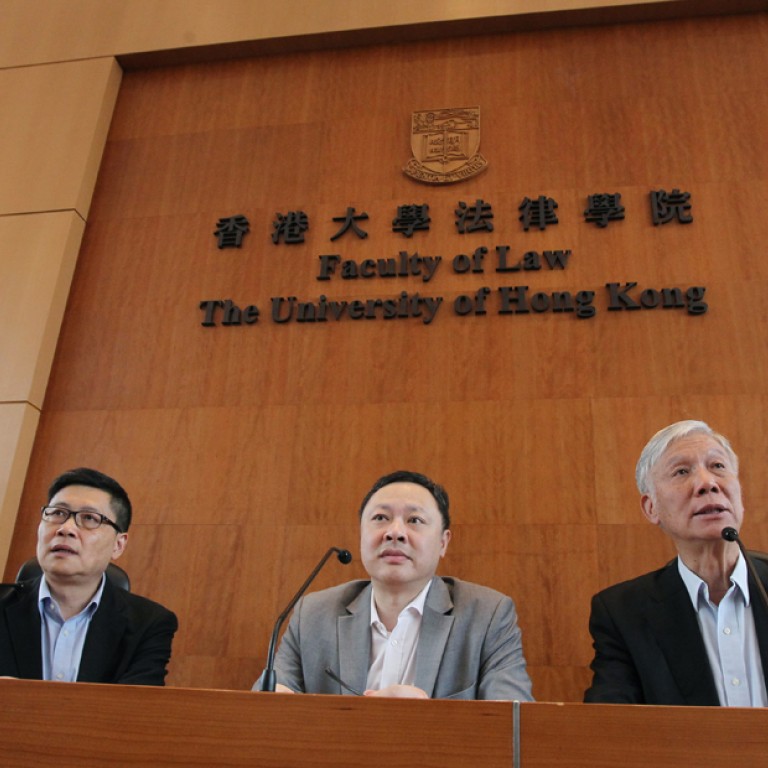
Missed opportunities from both sides of the political reform divide
Mike Rowse says conservative and democratic camps have fallen short
No one can accuse our politicians of missing an opportunity to - well, miss an opportunity. The latest to strike out are the Occupy Central activists who endorsed a very narrow range of options to put to a public referendum in June instead of trying to be as inclusive as possible.
But before we get to them, let us go back to the start of the government's consultation exercise on political reform. The paper which launched proceedings was, in at least two respects, less than honest.
First, instead of putting forward proposals for a new organisation - the nominating committee - it pretended the existing Election Committee was the new body, and floated some minor options for improving its representativeness. Given that the Election Committee is chronically unrepresentative, this was a rather clumsy sleight of hand.
Second, perhaps more serious, the concept of collective nomination of chief executive candidates, which is not mentioned anywhere in the Basic Law or any guidelines set by the National People's Congress, suddenly jumped into the arena as a mainstream option - almost a fait accompli.
And yet despite this unpromising beginning, the consultation exercise did achieve its main purpose, which was to draw out all the major strands of public thinking on how we should elect our legislature in 2016 and our chief executive in 2017. Somewhere among the 130,000 submissions there should be the answers.
The proposals put forward by the Democratic Alliance for the Betterment and Progress of Hong Kong represent the most conservative end of the spectrum. The Legislative Council stays untouched in 2016, chief executive candidates in 2017 must receive the support of at least half the members of the nominating committee.
The problem here is that if we do not make some moderate progress with Legco in 2016, how can we jump all the way forward to full universal suffrage in 2020?
And the proposals for 2017 miss the point of the whole exercise, which is to identify a person with a solid mandate to lead Hong Kong. In that respect, universal suffrage at the final stage is not enough: it will only work if voters have a genuine choice of candidates.
Collective nomination raises the threshold for candidates to 50 per cent. Even conservative voices including Alan Hoo, a delegate to the Chinese People's Political Consultative Conference, have said this is unacceptable.
The DAB proposals do not address our governance problems. This failure should have provided the pan-democrats with the perfect opportunity to occupy the moral high ground by offering practical proposals.
Instead, Occupy Central has echoed the DAB error, albeit from the other end of the spectrum. The three options which it hopes to get the community to choose between all include civic nomination, which Beijing has ruled out and which is almost certainly contrary to the Basic Law. Most citizens are unlikely to waste their time debating proposals which are not going anywhere.
Yet it could all have been so different. More moderate proposals from people like the Alliance for True Democracy, Ronny Tong Ka-wah and the Hong Kong 2020 group would draw the community into the nomination process.
By ignoring all these suggestions, Occupy Central has denied Hong Kong people the very thing it claims to be pursuing: a genuine choice. It has therefore ensured that no one will take the outcome of its referendum seriously.

